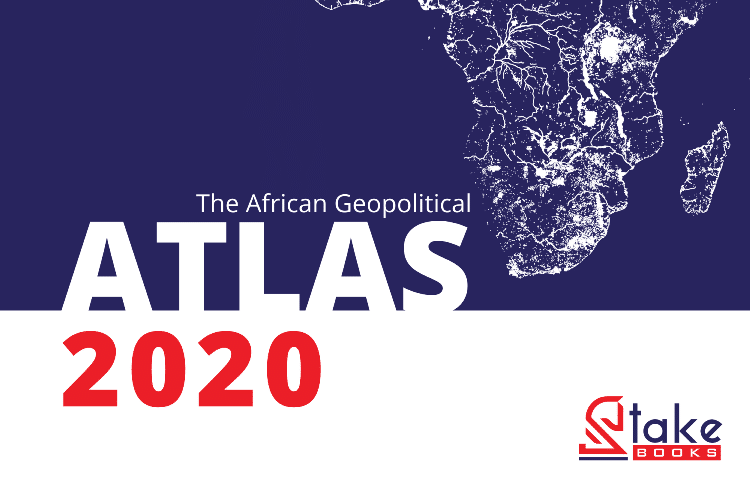
Stake experts have recently published the 2020 edition of The African Geopolitical ATLAS. This 222 pages-long bilingual (English/French) book aims to “provide decision-makers with a snapshot of the geopolitical changes taking place on the continent in the past two years”. Mireille Eza is a jurist in international public law who has been conducting capacity building and cooperation activities with governments and parliaments around the world for some twenty years. She wrote the preface of this year’s ATLAS.
Mireille Eza discusses the project with eWorldNews.
How did you come to get involved in this project, and why did you accept to contribute?
I met Claude Biao, the managing editor of this years’ Atlas, a few years ago in Paris, as part of my occupation. We were brought to work on several subjects, in particular on issues of development in West Africa.
I am one of those who believe that Africa needs more valuable endogenous analysis and expertise. And above all, it needs non-partisan and unbiased insights. In this respect, the project of the Atlas appeared interesting and relevant to me, as it offers an ordered collection of maps to expose various themes or facts on the continent’s challenges. Furthermore, the fact that it is carried out on the initiative of an African-led organisation, was an additional reason for commitment.
You are working with African governments and parliaments for about two decades now. How do you think this ATLAS can help policymakers on the continent?
The Stake experts’ geopolitical Atlas is a reliable tool to make prevision and planning in investments in Africa. One cannot get sustainable progress or development for any company or project without those two parameters.
As stakeholder, you get clear pictures that help understand the broader continent or specifically regional situations at a glance, and anticipate how they might evolve, the difficulties as well as the advantages that may lie on your road. It’s a great time saver. You will no longer be required to read a lot of reports to make your own idea, as the context literally jumps out at you. Of course, this does not exempt from reading them, but it accelerates the overall process of making more informed decisions.
Take for example the relation between conflicts, mining places and displaced people, those maps are great tools to draw an overview of what is going on, and the issues ahead.
Africa seems to have long been treated as an exception in terms of history and politics. How do you think this perception evolved in recent years?
Africans early understood that their emancipation would be painful. They saw the fate reserved to those who, at the risk of their lives, tried at one time in history, to denounce predations both internal and external.
They were trained to consider that they were “inherently incapable”. One can see it, listening to or reading the international media, even today. Sometimes, disregarding reality is still spreading around. As a result, Africans got cold feet. But let’s be honest, Africa has brought a lot to the world and still continues to do so greatly. There is a word it should use more often: no. No, it’s not fair, it’s not balanced. It should more often suggest its own vision, as a continent, and stand by it. We certainly need to do business with others, but they need it at least as much as we do. Let’s talk about efficient deals for a fair future. The world deserves it. We deserve it. To tell our own stories and try it our way, the lead matters. The exemplarity of the continent’s rulers must be a goal and a condition. This is impossible without an agiornamento. When it comes to change, we quickly call upon tradition, culture or faith. They have nothing to do with the absence of progress, otherwise, countries like Japan, the Korea or the Qatar would never have developed.
What in your opinion are the greatest challenges for the African continent in this new decade?
I see tree major challenges: Governance, Ecology, and Education.
By governance, I mean a clear and shared vision for each country, and a global vision for the continent, respect for the rule of law and human rights, a real democratic system with no tailored constitutional reforms, a transparent financial management system, effective policies for healthcare, free education, decentralization and a strong commitment to gender issues because the more women are educated, the stronger becomes a country. All these points are paths to sustainable peace which is a condition for development.
The environment issue is to me a central one for Africa as well. The continent should not remain the world’s rubbish. And finally, education and training, access to digital technology are also big issues for tomorrow. Responsibility and accountability should become our leitmotiv to achieve shared and sustainable development.
Vigilance is essential when we realize the number of concepts designed and blindly applied to Africa that has given rise to the social and economic disasters we are still facing. No matter if we are French-, English-, Portuguese-, Arabic- or Spanish-speaking, these formerly imported languages that we made ours, should make us feel stronger and more comfortable in this globalized era as we can discuss and plead in our partner’s languages. I am convinced that the continent is at a turning point. Some may resist. But change is inevitable. There is no more room for a dream. Just positive action, continuous hard work and faith in ourselves.
